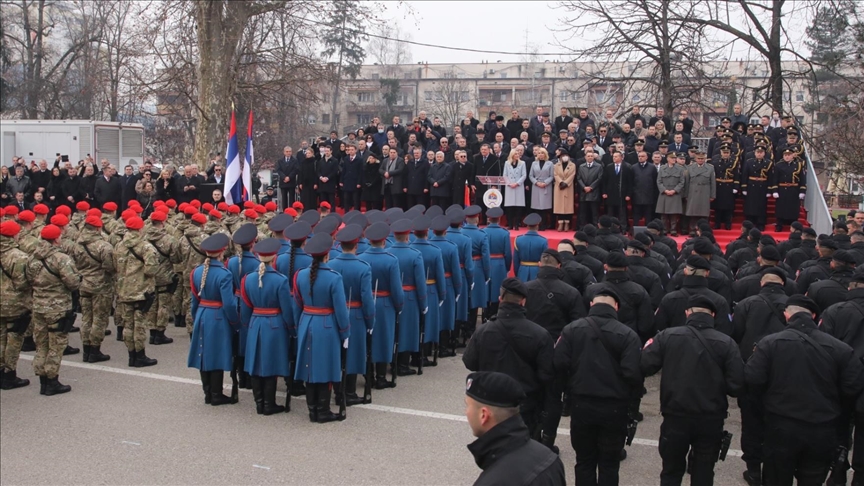Bosnia sends protest notes to Russian, Chinese, Serbian embassies
Presence at unconstitutional celebrations of Republika Srpska's anniversary is gross interference in Bosnia’s internal affairs, says minister
 Parade held to mark the “January 9th Republika Srpska Day” despite being declared unconstitutional by the Constitutional Court of Bosnia and Herzegovina in Banja Luka, Bosnia and Herzegovina
Parade held to mark the “January 9th Republika Srpska Day” despite being declared unconstitutional by the Constitutional Court of Bosnia and Herzegovina in Banja Luka, Bosnia and Herzegovina
BELGRADE, Serbia
Bosnia and Herzegovina sent protest notes Monday to the Russian, Chinese and Serbian embassies for sending embassy representatives to mark the anniversary of the founding of the autonomous Republika Srpska in defiance of a top court ruling.
Foreign Minister Bisera Turkovic emphasized that the official participation in these celebrations amounted to a gross interference in the internal affairs of Bosnia and Herzegovina.
In the protest notes, the relevant decision of the Constitutional Court of Bosnia and Herzegovina published in the official gazette was included, and it was stated that such actions could disrupt bilateral relations with Bosnia and Herzegovina.
The Ministry of Foreign Affairs lodged a protest over the presence of representatives of the embassies at the commemoration ceremonies in the city of Banja Luka, which represent an act opposing the upper ruling of the Constitutional Court.
The ministry was therefore forced to strongly condemn this behavior, which can disrupt friendly relations, said the notes.
Bosnian Serbs held celebrations to mark the anniversary of the founding of the Republika Srpska entity.
A parade in Banja Luka – the administrative capital of the entity – kicked off the celebrations Sunday.
Among those attending were Serbian Prime Minister Ana Brnabic together with Serbian Parliament Speaker Ivica Dacic and ministers from her Cabinet as well as the Chinese and Russian ambassadors to Sarajevo and far-right French deputies.
Court order
Bosnian Serbs consider Jan. 9 to be their small state's most important holiday.
However, in late November 2015, Bosnia's Constitutional Court ruled that celebrating Republika Srpska Statehood Day could be discriminatory to other ethnic groups in the country.
The Constitutional Court of Bosnia and Herzegovina was established by the Dayton Peace Agreement that ended the Bosnian War in 1995. It consists of two Bosniaks, two Serbs, two Croats and three foreign judges, and its decisions are legally binding.
However, Serbs in Republika Srpska overwhelmingly passed a controversial referendum on a "national holiday" in defiance of Bosnia's highest court in September 2016.
Over 99% of the voters in the Serb-majority territory chose to make Jan. 9 “Statehood Day,” fueling fears that the referendum could be a first step towards seeking independence from Bosnia and Herzegovina, a country torn apart by violent ethnic conflict in the 1990s.
Prosecutors also summoned Republika Srpska's then-leader Milorad Dodik to testify about the controversial referendum on his entity's "national holiday."
Anadolu Agency website contains only a portion of the news stories offered to subscribers in the AA News Broadcasting System (HAS), and in summarized form. Please contact us for subscription options.







